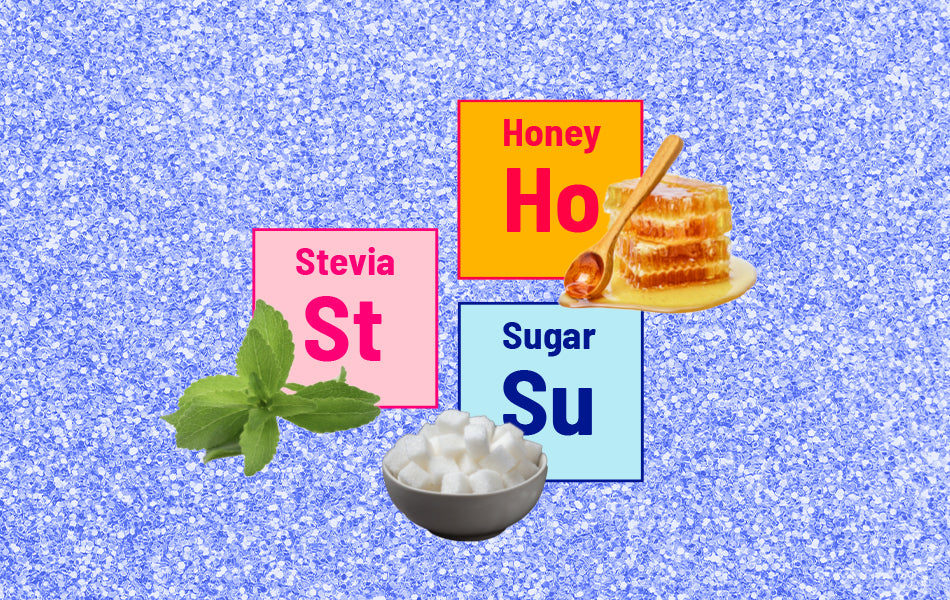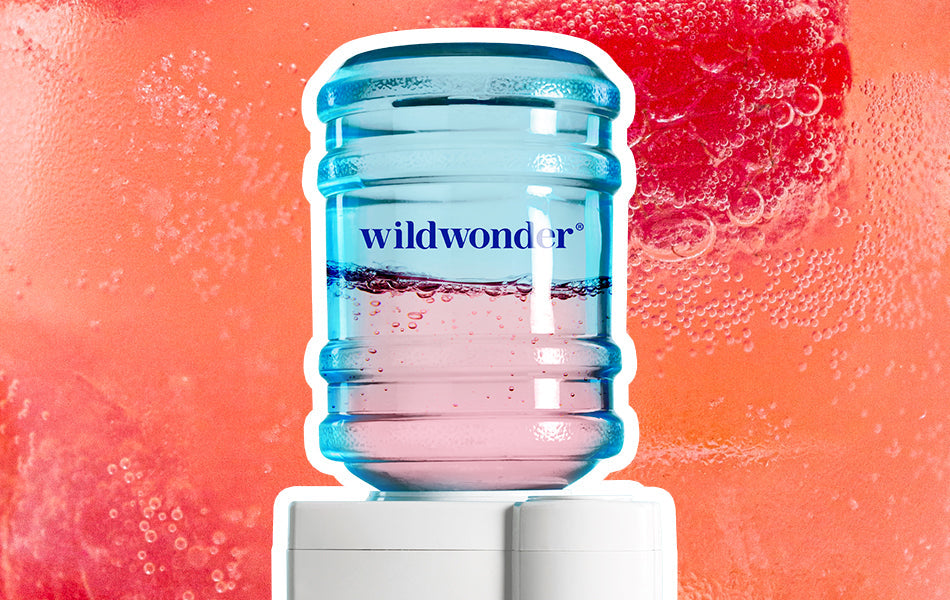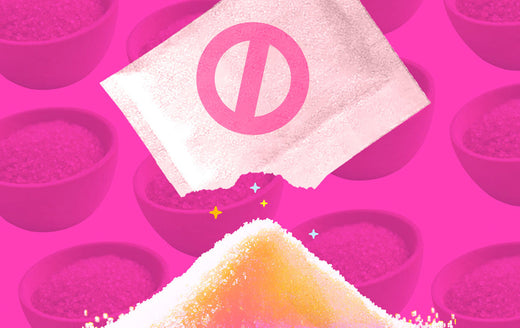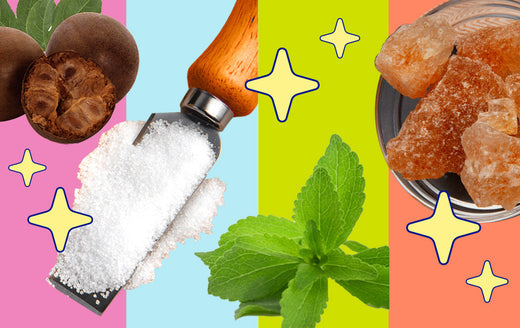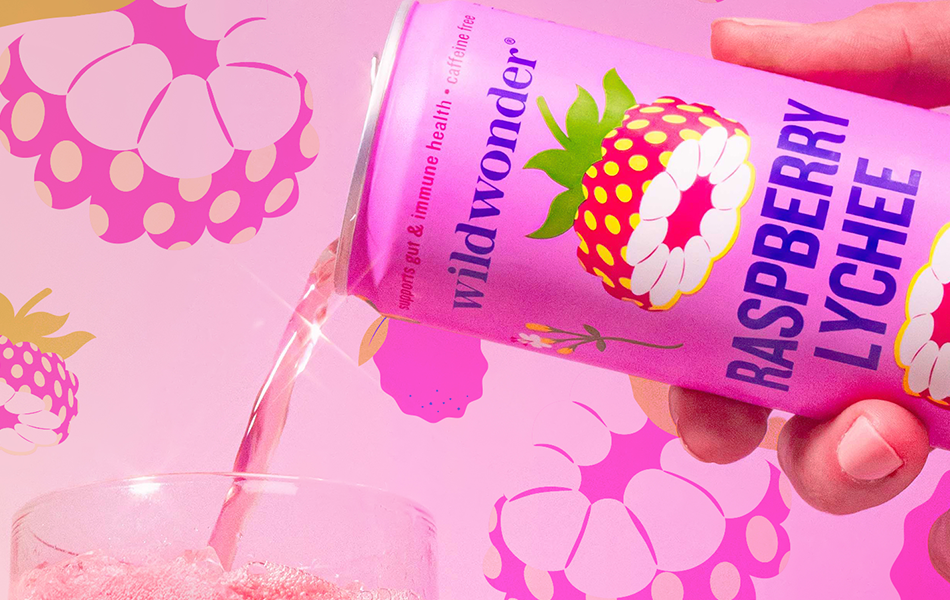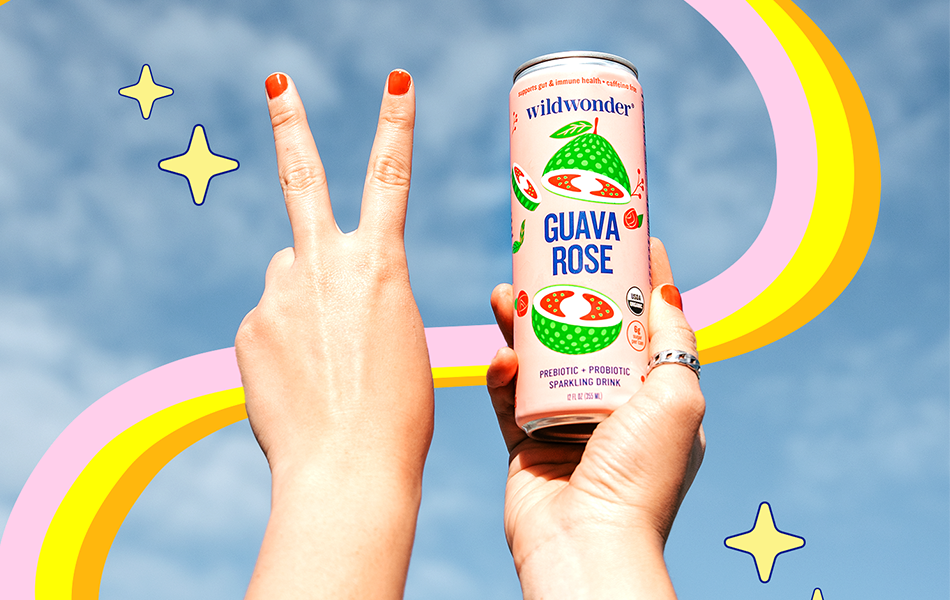Irritable Bowel Syndrome (IBS) is a common gastrointestinal disorder characterized by a group of gastrointestinal symptoms that typically occur together, including abdominal pain, bloating, and altered bowel habits such as constipation or diarrhea.
Although the exact cause of IBS is unknown, it can significantly affect a person’s quality of life, leading to discomfort and disruptions in daily activities.
IBS is prevalent worldwide, affecting an estimated 10-15% of the global population. Its impact on individuals can be profound, often leading to chronic pain, fatigue, and psychological distress.
Given its widespread nature and the limited efficacy of traditional treatments, there has been growing interest in alternative therapies, including probiotics, for managing IBS symptoms.
Probiotics are live microorganisms that, when consumed in adequate amounts, confer a health benefit on the host. Found in fermented foods and dietary supplements, probiotics are believed to restore the natural balance of gut bacteria.
This has led to increasing consideration of probiotics as a potential treatment option for IBS, aiming to alleviate symptoms and improve overall gut health.
What the Research Says
Recent research has shed light on the potential benefits of probiotics for individuals suffering from Irritable Bowel Syndrome (IBS). Studies suggest that probiotics may alleviate several symptoms associated with IBS, such as abdominal pain, abdominal bloating, and irregular bowel movements.
Various strains of probiotics, specifically Bifidobacterium and Lactobacillus, have shown promising results in clinical trials, indicating improvements in both the frequency and severity of symptoms.
While more research is needed to fully understand the precise mechanisms and optimal strains, the existing evidence positions probiotics as a compelling, natural treatment option for managing IBS symptoms.
Here are the findings from some available data.
2015 meta-analysis findings (Didari et al.)
A 2015 meta-analysis conducted by Didari et al. found that probiotics significantly reduce pain and symptom severity scores in patients. The study highlighted that probiotics have beneficial effects compared to placebo treatments. The meta-analysis encompassed multiple clinical trials involving diverse patient populations, including those suffering from various gastrointestinal disorders.
The study design typically involved double-blind, placebo-controlled trials to ensure the reliability and validity of the findings, with participants being randomly assigned to either probiotic or placebo groups.
These findings underscore the potential of probiotics as a complementary treatment option for managing symptoms and improving the quality of life in affected individuals.
2020 meta-analysis results
A 2020 systematic review and meta-analysis conducted by Li et al. evaluated 59 studies that focus on IBS and probiotic use. Results showed that probiotics are effective and safe for those with IBS.
Single probiotics with higher doses appear to be a better choice, but more data is needed to confirm this.
Results also suggest that probiotic use for less than 8 weeks appears to be a better choice for the IBS population. The results did not specify which strains or species was more beneficial for those with IBS.
2022 meta-analysis comparing probiotics to medications
A systematic review and meta-analysis evaluated the efficacy of both probiotic- and drug interventions among those with IBS. Diarrhea-predominant IBS is a common subtype among people with IBS. Thirty-two randomized controlled trials were eligible for the analysis.
Results indicated that both probiotic and drug interventions can improve the persistence of IBS symptoms and abdominal pain scores. Bloating was significantly decreased in the medication group. There was a lower incidence of adverse events among the probiotic group vs. the medication group.
How Probiotics May Help Irritable Bowel Syndrome
There are several possible mechanisms by which probiotics may help IBS by influencing the gastrointestinal tract. Here are some that may play a role.
Modifying gut microbiota: Probiotics help alter the composition of gut microbiota, increasing the population of beneficial bacteria which can combat harmful microbes. This rebalancing may improve overall digestive health and alleviate IBS symptoms.
Balancing beneficial and harmful bacteria: By promoting the growth of beneficial bacteria and inhibiting the proliferation of harmful ones, probiotics can create a healthier and more balanced gut environment.
Impact on gut-brain axis: Probiotics may positively influence the gut-brain axis by reducing stress and anxiety, which are often associated with IBS. This can lead to an overall improvement in symptoms and quality of life.
Improving intestinal barrier function: Probiotics play a crucial role in enhancing the intestinal barrier function, preventing harmful substances from entering the bloodstream. This helps in maintaining digestive health.
Reducing intestinal permeability (“leaky gut”): By strengthening the gut lining, probiotics may help reduce intestinal permeability, preventing toxins and pathogens from passing through the gut wall, which can help reduce IBS symptoms.
Enhancing mucus production: Probiotics can stimulate the production of mucus, which provides a protective layer in the gut, helping to defend against harmful bacteria and improving intestinal health.
Reducing inflammation: Probiotics can reduce inflammation in the gut, a common issue in IBS patients. This reduction in inflammation may lead to a decrease in pain and discomfort.
Modulating immune responses: Probiotics have the ability to modulate the immune system, enhancing its response to harmful pathogens while preventing unnecessary inflammation, which can be beneficial for individuals with IBS.
Decreasing pro-inflammatory cytokines: By decreasing the levels of pro-inflammatory cytokines, probiotics can help manage the inflammatory processes that exacerbate IBS symptoms, leading to relief and better gut health.
Influencing intestinal microflora: Probiotics can positively impact the intestinal microflora, which plays a significant role in the management and treatment of IBS. By restoring the balance of intestinal microflora, probiotics may alleviate IBS symptoms and improve overall gut health.
Types of probiotics studied for IBS
Irritable Bowel Syndrome (IBS) has prompted extensive research into the efficacy of probiotics, with a focus on both single-strain and multi-strain formulations.
Single-Strain vs. Multi-Strain
The debate between single-strain and multi-strain probiotics centers around their varied effects on gut health.
Single-strain probiotics consist of one specific type of beneficial bacteria. These have been found to target particular symptoms with a more focused approach.
On the other hand, multi-strain probiotics contain multiple different species or strains of bacteria. The interplay between these various strains can offer a broader spectrum of benefits, potentially improving overall gut flora diversity and resilience.
Most Commonly Studied Species and Strains
Several species and strains of probiotic bacteria have been the focal point of IBS-related probiotic studies:
-
Lactobacillus: Notably, Lactobacillus rhamnosus GG and Lactobacillus acidophilus are frequently researched for their positive effects on gut motility and inflammation.
-
Bifidobacterium: Strains such as Bifidobacterium infantis and Bifidobacterium bifidum have shown promise in alleviating bloating and abdominal pain.
-
Saccharomyces boulardii: This beneficial yeast has been noted for its role in reducing the severity of diarrhea and boosting gut barrier function.
Understanding the balance between single-strain and multi-strain probiotics, along with identifying the most effective species and strains, is essential for optimizing treatment plans for IBS sufferers.
Combining Probiotics with Other Treatments
Probiotics and medications (e.g., rifaximin)
The combination of probiotics with traditional medications such as rifaximin has been an area of active research, revealing promising synergistic effects.
Small intestinal bacterial overgrowth (SIBO) is one of the conditions that can contribute to irritable bowel syndrome (IBS) symptoms, and understanding its role is crucial. Probiotics can enhance the efficacy of antibiotics and other pharmaceutical treatments by promoting beneficial gut flora and improving the overall gut environment.
This synergy between probiotics and medications like rifaximin not only aids in more efficient symptom relief but also holds the potential for reducing the necessary dosage or duration of the medication.
Lowering these factors can mitigate the side effects associated with long-term use of antibiotics and decrease the likelihood of developing antibiotic resistance. Therefore, the combined approach of combining probiotics with traditional treatments represents a compelling strategy for enhancing therapeutic outcomes while minimizing adverse effects.
Of course, always consult with your healthcare provider before choosing this path.
Probiotics with dietary interventions
When paired with dietary interventions like a Low FODMAP diet, probiotics can help reduce symptoms of irritable bowel syndrome (IBS) by decreasing the intake of fermentable oligosaccharides, disaccharides, monosaccharides, and polyols that often exacerbate digestive discomfort.
Additionally, fiber supplementation alongside probiotic intake may promote a healthier gut microbiome in some (not all) cases. Fiber serves as a prebiotic, feeding beneficial bacteria and supporting their growth.
This synergy between probiotics and dietary adjustments contributes to improved digestive wellness and overall health.
Probiotics and stress management techniques
Combining probiotics with stress management techniques can be particularly beneficial for individuals suffering from Irritable Bowel Syndrome (IBS).
Probiotics help restore the natural balance of gut bacteria, potentially alleviating some IBS symptoms like bloating, gas, and irregular bowel movements.
Meanwhile, stress management techniques such as mindfulness meditation, yoga, and cognitive-behavioral therapy can address the psychological aspect of IBS, reducing stress-induced flare-ups and improving overall gut health.
By integrating both approaches, individuals may experience a more comprehensive and effective management of IBS symptoms, contributing to an improved quality of life.
Considerations When Using Probiotics for IBS
When considering the use of probiotics for managing Irritable Bowel Syndrome (IBS), it is crucial to recognize that individual responses may vary. Each person's gut microbiome composition and IBS subtype can significantly influence how they respond to probiotic treatments.
Individual Responses May Vary
The effectiveness of probiotics can vary widely among different individuals. Factors such as genetic makeup, dietary habits, and pre-existing gut microbiome composition play a role in how one might respond to probiotic supplementation.
Importance of Personalized Approach
A personalized approach to probiotic use is essential. What works for one person may not work for another, highlighting the need for tailored probiotic selections based on individual health profiles and specific IBS symptoms.
Possible Side Effects or Intolerances
While many people tolerate probiotics well, some may experience side effects or intolerances. Common side effects include bloating, gas, and mild digestive discomfort. These symptoms often subside as the body adjusts to the probiotics.
When to Consult a Healthcare Provider
It is advisable to consult a healthcare provider before starting any new probiotic regimen, particularly for individuals with pre-existing health conditions or those taking other medications. A healthcare professional can provide guidance on the appropriate probiotic strains and dosages.
Importance of Quality and Strain Selection
The quality and specific strain of probiotics chosen can significantly impact their effectiveness. Inflammatory bowel disease (IBD) is another gut disorder that can contribute to irritable bowel syndrome (IBS), highlighting the importance of selecting the right probiotics.
Selecting products that have undergone third-party testing and certification ensures they meet high-quality standards. Additionally, it’s important to choose clinically studied strains that have shown efficacy in managing IBS symptoms.
Dosage and Duration of Treatment
Finding the right dosage and duration for treatment is a critical component of probiotic use. Typical recommended doses and the length of time one should try probiotics before assessing their effectiveness can vary. It is generally suggested to follow product-specific recommendations or seek advice from a healthcare provider to determine the optimal regimen.
Other Potential Benefits of Probiotics
Mental Clarity and Mood
The gut-brain connection has garnered significant attention in recent years, highlighting the profound impact gut health may have on mental clarity and mood.
Probiotics play a crucial role in maintaining a healthy gut microbiome, which in turn can influence neurotransmitter production and reduce symptoms of depression and anxiety.
Studies on probiotics and mental health suggest that specific strains may help enhance cognitive function, alleviate stress, and improve overall emotional well-being.
Joint Pain
Probiotics have also shown promise in relieving joint pain through their anti-inflammatory effects. Chronic inflammation is a key contributor to various forms of joint pain, including arthritis.
By promoting a balanced gut microbiota, probiotics can help reduce systemic inflammation, potentially mitigating the pain and discomfort associated with autoimmune conditions like rheumatoid arthritis.
Skin Health
The gut-skin axis is another compelling area of research, underlining how gut health can influence skin conditions. Probiotics may offer benefits for specific skin issues such as acne, eczema, and rosacea.
By fostering a healthy gut environment, probiotics help manage inflammation and bolster the skin's natural barrier, leading to better skin health and appearance.
Conclusion
The potential of probiotics for managing Irritable Bowel Syndrome (IBS) is increasingly recognized in both research and clinical settings. Probiotics may help alleviate some of the symptoms associated with IBS by improving gut health and restoring balance to the intestinal microbiota. However, to achieve the best outcomes, it is essential to adopt a holistic approach to IBS treatment, which includes diet modifications, stress management, and regular physical activity.
It's important for individuals suffering from IBS to discuss any new treatments, including the use of probiotics, with their healthcare provider. Personalized medical advice is crucial to ensure that any intervention is safe and effective.
The future of probiotic research holds promise, with ongoing studies aimed at better understanding the specific strains and dosages that provide the most benefit for IBS patients. This growing body of evidence may soon lead to more targeted and reliable probiotic therapies.
wildwonder as a probiotic-rich alternative to soda
If you're looking for an easy and enjoyable way to incorporate more probiotics into your diet, you can't go wrong with wildwonder. In addition to 1 billion live probiotics, each can contains 5g of prebiotic fiber which works as a food source for the good bacteria, and only 6g of sugar. But the best part? Unique, sophisticated flavors for adventurous foodies that you won't find anywhere else.
Overview of wildwonder's probiotic content
Unlike most probiotic drinks, wildwonder uses a strain of probiotics clinically proven to survive the harsh environment of stomach acid and reach the gut. This means the probiotics in wildwonder can actually make it to where they need to go in order to help you support a happy gut.
Type of Probiotic Bacteria Strain Used
wildwonder uses a probiotic strain called Bacillus subtilis. This strain has been clinically researched and is known for its resilience through the digestive tract, ensuring that it reaches the gut alive and active.
Potential Benefits for Gut Health
The inclusion of probiotics in wildwonder can support a happy gut, helping to alleviate symptoms like bloating, constipation, and diarrhea. Additionally, a happy gut is linked to improved immunity and even better mental health, underlining the far-reaching impacts of a robust microbiome.
Comparison to Traditional Sodas
Unlike traditional sodas, wildwonder is designed with health in mind. While conventional sodas are often laden with artificial ingredients and high levels of sugar, Wild Wonder offers a wholesome alternative that doesn’t compromise on taste or nutrition.
Lower Sugar Content
wildwonder prides itself on having significantly lower sugar content compared to typical sodas. Sweetened with monk fruit, it provides a refreshing taste without the excessive sugar rush and subsequent energy crash that often follows the consumption of sugary drinks.
Additional Health Benefits
In addition to probiotics, wildwonder also features prebiotics, herbs, and real fruit ingredients.
Prebiotics are non-digestible fibers that feed beneficial bacteria in the gut, enhancing the effectiveness of probiotics.
Herbs like ginger and turmeric are known to soothe the stomach, reduce inflammation, and boost immunity.
The inclusion of real fruit ingredients not only adds natural sweetness and vibrant flavors but also contributes antioxidants and vitamins, giving wildwonder an edge in promoting overall wellness.
How wildwonder fits into an IBS-friendly lifestyle
wildwonder can be a great addition to an IBS-friendly lifestyle, thanks to its thoughtfully selected ingredients and emphasis on gut health. It contains prebiotics and botanicals known to support digestive health, which may help alleviate some symptoms of IBS.
With no artificial sweeteners or preservatives, wildwonder minimizes potential triggers that might exacerbate IBS symptoms, making it a viable option for those looking to manage their condition through diet.Tolerance may vary, so check with your healthcare provider before you include wildwonder in your diet.
As Part of a Balanced Approach to a Healthy Gut Microbiome.
Incorporating wildwonder into your daily routine can contribute to a balanced approach to gut health. Its prebiotic content helps nourish the beneficial bacteria in your gut, promoting a healthier microbiome.
Coupled with a diet rich in fiber, lean proteins, and fermented foods, wildwonder can enhance your overall digestive wellness. It's a convenient way to get an extra boost of gut-friendly nutrients, especially for those with busy lifestyles.
Potential Role in Replacing Less Healthy Beverage Choices
wildwonder is a healthier alternative to sugar-laden sodas and artificially flavored drinks. By opting for wildwonder, you can reduce your intake of empty calories and potentially harmful additives, which often contribute to digestive distress and poor gut health.
Making this simple switch can be a step toward better hydration and improved overall health, aligning perfectly with a lifestyle focused on gut wellness and IBS management.
Final thoughts on incorporating probiotics into daily life for IBS management
Incorporating probiotics into daily life for IBS management can offer significant benefits, yet it is essential to approach this intervention thoughtfully. Probiotics can help restore a healthy balance of gut bacteria, potentially alleviating some of the symptoms associated with IBS, such as bloating, diarrhea, and constipation.
However, not all probiotics are created equal, and their efficacy can vary from person to person. It is advisable to consult with a healthcare professional to determine the most suitable probiotic strains and dosages.
Additionally, maintaining a balanced diet, staying hydrated, and managing stress are crucial in supporting overall gut health and optimizing the benefits of probiotics.
With a tailored approach, probiotics can be a valuable component in the holistic management of IBS.
About the Author
 Meet Lauren Manaker, MS, RDN, LD, CLEC, CPT, wildwonder's new resident dietician. Lauren is a multiple award-winner, book author, and freelance writer. She acts as an expert resource for outlets that include EatThis.com, Well + Good, and MindBodyGreen, leaning on her ability to interpret the medical literature to benefit her readers.
Meet Lauren Manaker, MS, RDN, LD, CLEC, CPT, wildwonder's new resident dietician. Lauren is a multiple award-winner, book author, and freelance writer. She acts as an expert resource for outlets that include EatThis.com, Well + Good, and MindBodyGreen, leaning on her ability to interpret the medical literature to benefit her readers.
 Shark Tank Bundle
Shark Tank Bundle
 Very Berry Variety Pack
Very Berry Variety Pack
 Rosa's Favorite Variety Pack
Rosa's Favorite Variety Pack
 Classic Variety Pack
Classic Variety Pack
 Pink Pomelo Limeade
Pink Pomelo Limeade
 Cherry Lemonade
Cherry Lemonade
 Raspberry Lychee
Raspberry Lychee
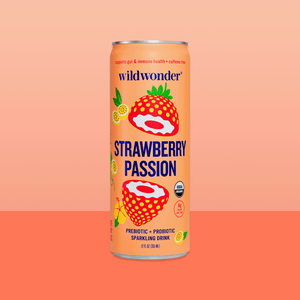 Strawberry Passion
Strawberry Passion
 Pineapple Paradise
Pineapple Paradise
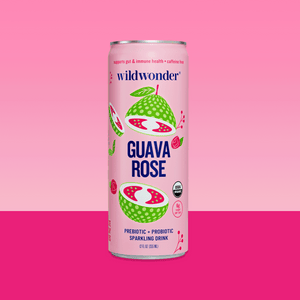 Guava Rose
Guava Rose
 Mango Gold
Mango Gold
 Blog
Blog
 Our story
Our story
 Impact
Impact































